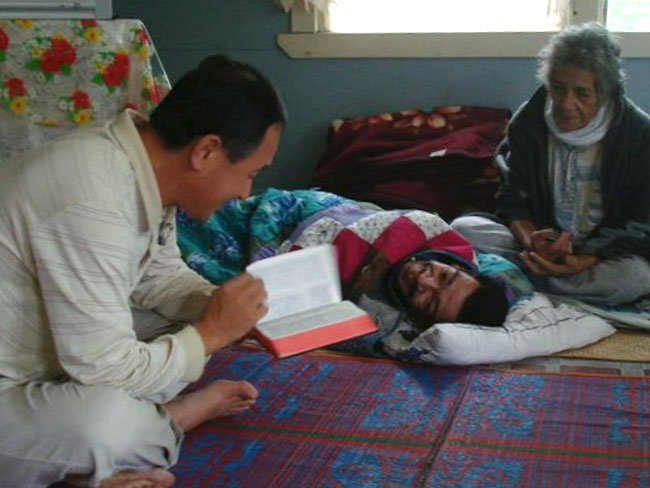
by Finau Fonua
Two Korean missionaries have improved the quality of life for Tonga’s most severely crippled people. The couple Rev. ‘Amanaki In-Kwon Kim (57) and his wife ‘Ofa Jeong-Seok Kim (53) run the Mango Tree Centre, a rehabilitation centre at Houmakelikao in Nuku'alofa that provides free physiotherapy and counselling to disabled people and their families in Tonga.
Rev. ‘Amanaki and his wife have been running the centre since 2007. The staff of six care for over 100 Tongans with severe disabilities, including 40 children suffering from a crippling disease known as Cerebral Palsy. Many of the children come from poor families.
Rev. ‘Amanaki explained, “Our children are both physically and intellectually impaired.”
“They cannot sit properly, their legs are stiff like bamboo,” his wife ‘Ofa said.
The Mango Tree Centre is one of three centres that take care of handicapped Tongans, and it cares for the most severely disabled.
“We help anyone who is disabled. We cannot refuse,” said ‘Ofa.
Every day the Kims and their staff go through the difficult procedures of training disabled children how to walk. The therapy involves special chairs which are used to keep the child in a straight position. ‘Amanaki explained “the standing frame and the chair is specialised to keep him in a good balanced position.”
“When he is straight the back muscles can be developed. He has a tray with things to play with and is communicated with. His brain is busy so he is developed both physically and mentally. Our goal is to make them to walk.”
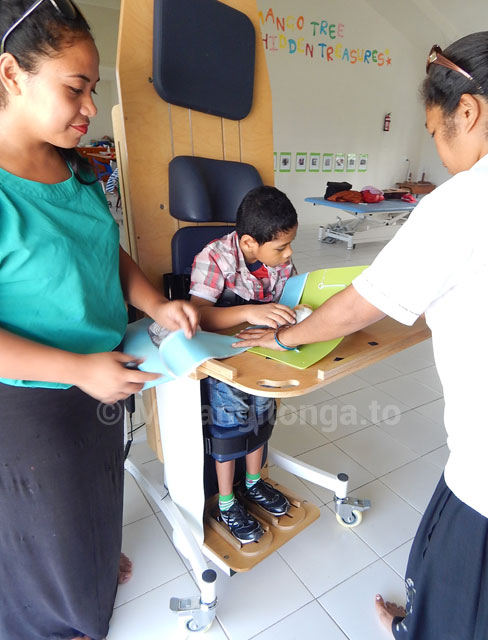
Epilepsy
Apart from being crippled or immobile the children also suffer from a variety of impairments such as cognitive dysfunction, deafness, weak immune systems and epilepsy.
Most of the children have epilepsy and rely on available medication. Medications for epilepsy in Tonga are often limited to Carbamazepine and Epilim, as new medications are hard to come by.
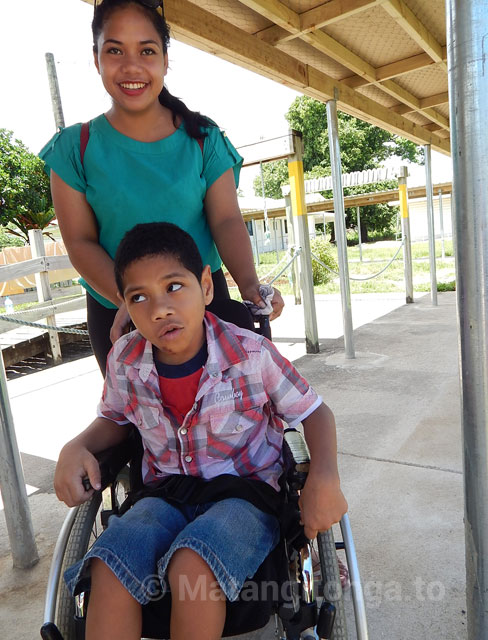
Wheelchairs have to be customized for the children because of costs. 'Ofa said, “Children's wheelchairs are very expensive so we have to customize them. But every disabled child here has a wheelchair at home.”
Home visits
‘Amanaki and ‘Ofa also pay regular home visits to paraplegics or to those who are too crippled to visit the centre. They currently visit 12 people with spinal injuries.
‘Amanaki said, “They cannot come to our centre because they are paralyzed so we have to visit. They lost their mobility because of a diving accident, rugby or car accidents.“
“These patients we regularly visit even when we are busy. They need many things. We give them a customized wheelchair, urine bags and a specialized mattress to prevent bedsores. They need to change their position at least every two hours. We have to teach the families, if not then they will have bedsores, bladder problems and skin problems
“After they are discharged from hospital there is no more service, no social and medical service. We are helping them as much as we can. Our service is very limited so we can’t do everything we want.... Sometimes if they are very poor and the house is poor, whenever we have a building team from overseas we ask them to build a simple house for them. Already three houses we have built.”
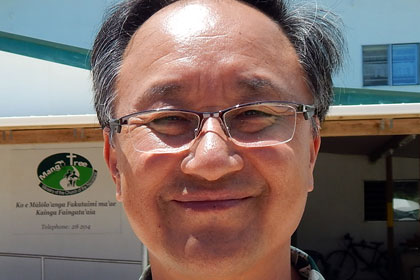
When asked why they came to Tonga. ‘Amanaki replied “God called us”
“Disabled children are my treasure” his wife ‘Ofa added.
As a young man, Rev. ‘Amanaki worked as a caregiver for disabled children in Korea whilst his wife ‘Ofa worked as a counsellor. The couple served as missionaries for the Church of the Nazarene and lived in Kenya for four years, helping people infected with HIV in the slums of Nairobi. The couple then moved to Auckland to study theology before being asked to run the Mango Tree Centre in Tonga.
‘Amanaki explained, “While we were studying in New Zealand some missionaries invited us to survey disability in Tonga. We decided to stay.
“When we started we only had one disabled child who was five. We were not physiotherapists but he needed physio because he was lying all day long and no one was helping, so we decided to help him. Now he is 12 and he can walk. There was only one physiotherapist at Vaiola Hospital and because he was busy we could only get him once or twice a week. We just got more and more children.”
As the Mango Tree Centre received more patients, news of the centre's service inspired donations and volunteers. Physiotherapists arrived from New Zealand and Australia to help the centre.
“Every year we have lots of therapists who come here because they know we need help here. They use their own holidays, they use their own money, but they love to come here,” said 'Amanaki.
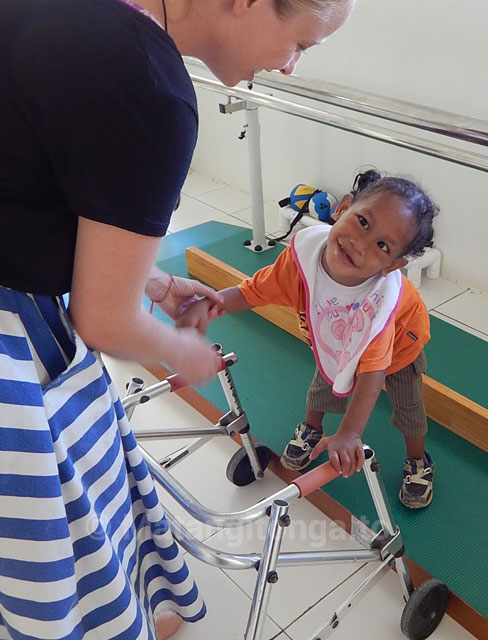
“One rehabilitation hospital in Seoul invited us last year and they trained us for two months – now we are qualified physiotherapists”.
The centre regularly receives volunteers from Aus-Aid. The New Zealand, Korean and Japanese governments have also helped build new facilities for the centre
“One day a Korean pastor rang me and wanted to help me. I asked for a building team - and just like that, they came from Korea. Digicel helps our ministry with free internet. Westpac helped with our transportation. ASCO Motors provides us with free maintenance – it is a miracle!” exclaimed ‘Amanaki.
Blind
The centre also offers braille lessons for the blind and visually impaired. Braille is a touch-reading method for the blind. Tongan braille books had to be created as none existed.
‘Ofa explained “We teach braille for the blind people – we have braille class and also pre-braille class for the small kids who have low vision.”
“Most of the low-vision children will lose their eyesight in the future, but blind students can study like abled children if they know braille and English. There are no Tongan braille books so we had to make some braille story books. There are many English braille books. We started pre-braille classes for low-vision last year. Early intervention is important.”
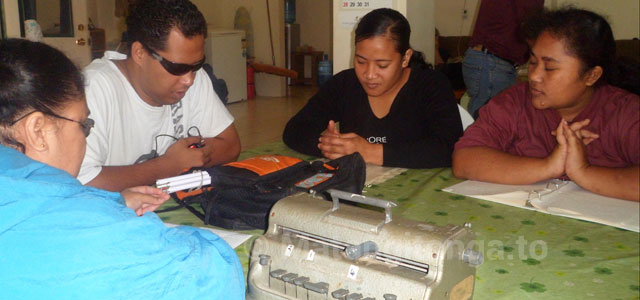
Rev. ‘Amanaki and his wife stated their ambitions to expand their operations.
“We want to help with the autistic children. Autism is a behaviorial problem but they can be changed if they are trained. Early intervention is important.
“Our goal is to make Mango Tree Centre the best rehabilitation centre in the South Pacific, for cerebral palsy children with Jesus’s help.”
“We care for the disabled children, not just them but also their families. Whenever they have problems, we visit and pray for them. In Tonga, many families are broken,” he said.


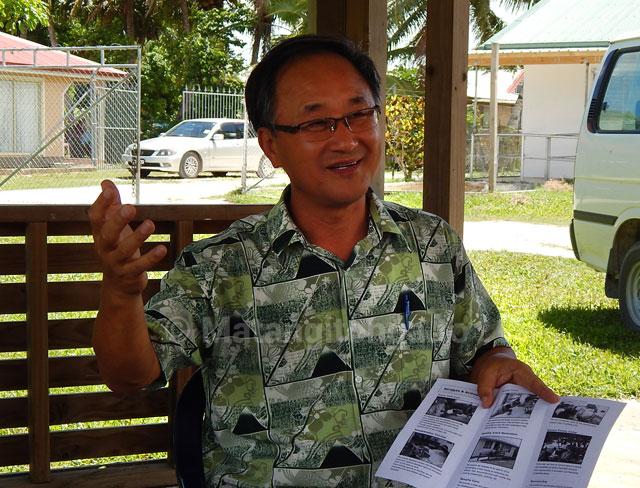
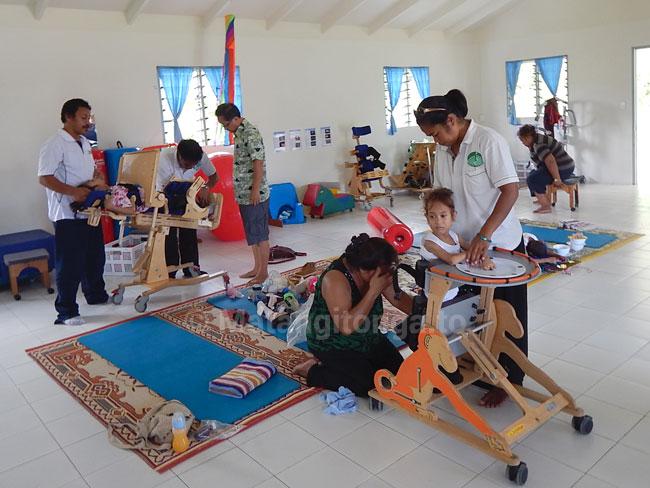
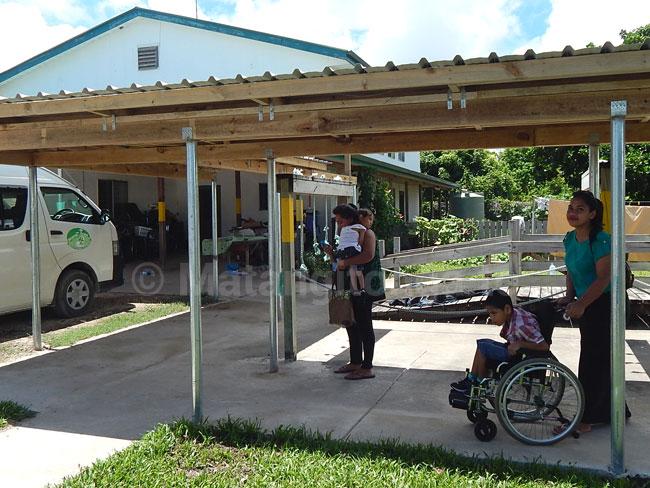
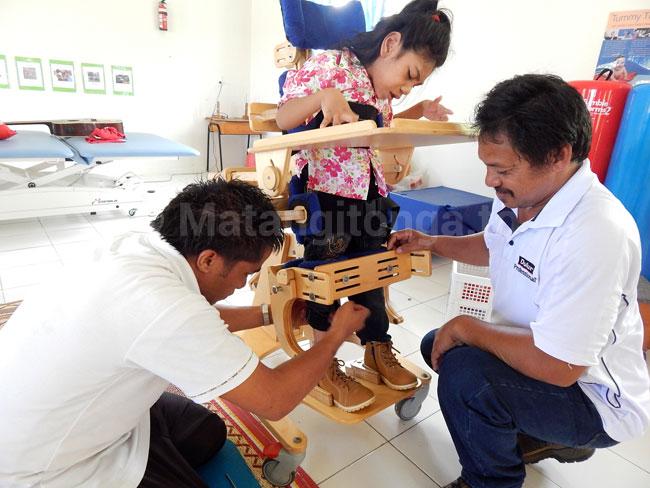
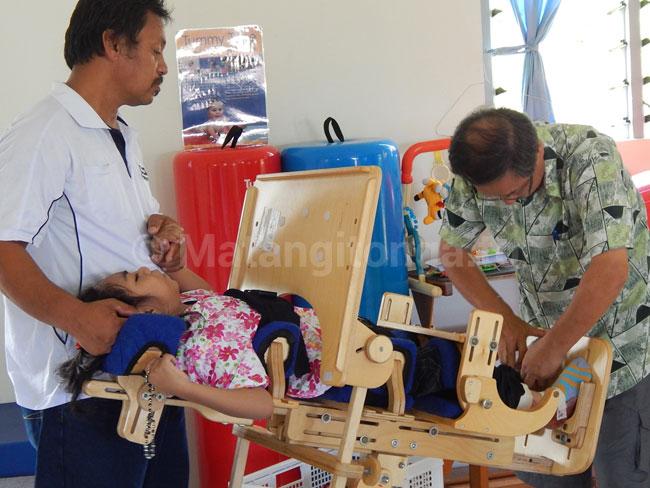
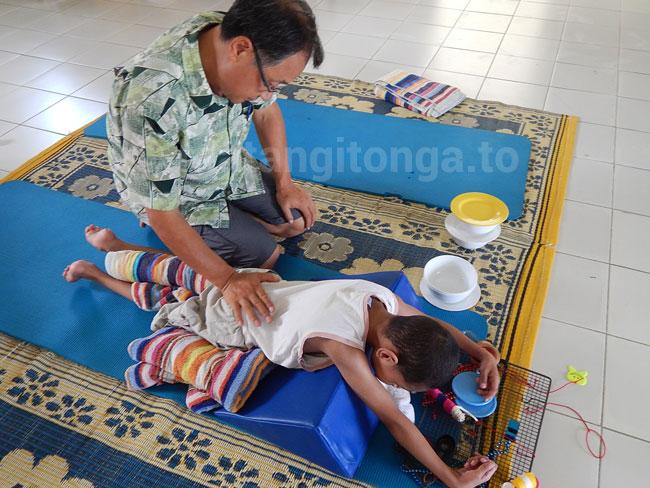



Comments
I admire the spirits and
I admire the spirits and love of these people. The Kingdom should do a fundraising event once a year to help. The businesses have helped although it is limited. These are the people in need and they deserve special attention. Malo e ngaue lelei mo e 'ofa ki he to ki lalo. Sione Tu'itavake Fonua.
Yes, this is true
Yes, this is true Christianity in action....showing the love of God to others less fortunate. May we all be inspired by these kind people to care more for others and build a better Tonga and a better world. God bless this ministry.